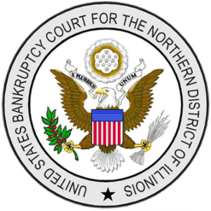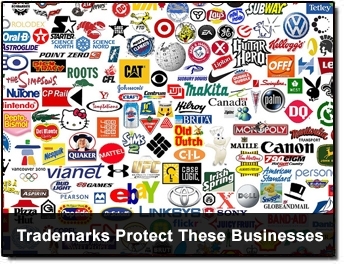Malpractice is sometimes defined as an act or continuing conduct of a professional which does not meet the standard of professional competence and results in damages to his/her client or patient. Such an error or omission may be through negligence, ignorance (when the professional should have known), or intentional wrongdoing. Lustig & Wickert offers decades of experience in handling professional malpractice cases for clients. Our attorneys have handled legal, accounting, broker and agent malpractice litigation. Such matters have included negligence claims arising from real estate transactions, statutes of limitation, divorce cases, complex commercial litigation and personal injury cases. One such claim resulted in a multi-million-dollar settlement against a large law firm for mishandling a large commercial litigation matter for one of their clients.
Commercial Litigation
Commercial litigation encompasses a broad range of disputes and proving fault or negligence and demonstrating the extent of damages or injury can be challenging. We have successfully represented clients in thousands of cases involving breach of contract, negligence, shareholder disputes, partnership disputes, injunctions, temporary restraining orders, anti-trust, false advertising, patent infringement, trademark infringement, copyright infringement, fraud and embezzlement. While many of our cases are straight-forward, we are routinely retained because of our expertise in complex commercial litigation matters. Our highly experienced team of attorneys have attained a high degree of peer recognition and professional achievement. Lustig & Wickert provides effective representation for commercial litigation matters, including hearings, trials, arbitrations, and mediations in federal and state courts.
We are experienced in a broad range of disputes including:
- Asset Purchase Agreements
- Construction Contracts
- Development Agreements
- Distribution Agreements
- Employment Contracts
- Franchise Agreements
- Insurance Agreements
- Intellectual Property Licenses
- Investment Agreements
- Lease Agreements
- Merger Agreements
- Non-Compete Agreements
- Non-Disclosure Agreements
- Option Agreements
- Professional Service Agreements
- Promissory Notes
- Purchase Agreements
- Real Estate Purchase and Sale Contracts
- Sales Contracts
- Sales Representative Agreements
- Settlement Agreements
- Shareholder Agreements
- Stock Purchase Agreements
Appellate Practice
Business Bankruptcy
Bankruptcy is a legal term for when a person or business cannot repay their outstanding debts. The bankruptcy process begins with a petition filed by the debtor, which is most common, or on behalf of the businesses creditors, which is less common. Lustig & Wickert has significant experience in business bankruptcy and bankruptcy-related adversary litigation. We help our clients develop strategies for navigating the minefields of insolvency. We also represent debtors, creditors, and other parties in adversary matters in bankruptcy court. Our experience coupled with our willingness to utilize result based fee arrangements have proven attractive to clients in bankruptcy litigation by minimizing expenses and risks.

Trademark Prosecution
Trademarks tell the world that what you make or what you sell comes uniquely from you. You want to stand out. You want customers to remember you and you want to keep copycats at bay. Strong trademarks do all these things.
Once you have selected your new business name, product name, logo or slogan, it is critical that you have a comprehensive trademark search performed. The purpose of the comprehensive trademark search is to determine whether your name, logo or slogan is available for you to use and register as a trademark for your business.

You need to confirm that you name, logo or slogan that you have selected will not infringe upon anyone else’s trademark rights, so that you may protect yourself from lawsuits from other companies claiming trademark infringement. The comprehensive trademark search will ensure that your name, logo or slogan is available for you to use and avoid infringement if your business name, logo or slogan has already been taken.
Our services include:
- Analysis of potential trademarks.
- Preliminary online screening searches to determine registrability of trademarks and/or infringement risks relative to existing third party trademarks.
- Full trademark searches using the services of a third party search firm to determine federal registrations, state registrations, common law usages of third party marks, and internet domain name registrations.
- Determine registrability.
- Preparation and filing of trademark application with U.S. Patent and Trademark Office or appropriate state corporate divisions.
- Prosecution of trademark applications with US Patent and Trademark Office, including negotiating with Examining Attorney assigned to trademark application to obtain issuance of trademark registration.
- Preparation of agreements related to trademarks, such as trademark license agreements.
- Assignments of trademark rights.
- Analysis of potential trademark infringement actions by third parties.
- Enforcing trademark rights through litigation in federal or state courts.
- Providing trademark monitoring services on an ongoing basis.
Call us for a free and confidential consultation if you have a name, logo or slogan that is important to you. We can help you protect these valuable assets.
Patent Litigation
In simple terms, patent litigation is the legal process that unfolds when someone who owns the patent for a particular invention enforces their right by suing another for manufacturing or selling the invention without permission. Lustig & Wickert brings real trial experience to patent trial litigation. Often intellectual property lawyers have the technical knowledge but become bogged down in the technical aspects of the case. As trial attorneys, we can often simplify technical issues so a jury can understand them. We have even been engaged by intellectual property attorneys as co-counsel to handle the trial of patent matters. Our lawyers have been involved in patent cases including the fields of software, ceramic welding, and folding chair design.

Illinois Sales Representative Act

If you are paid on a commission basis in Illinois, or are a company in Illinois which pays its vendors or employees on a commission basis, you need to know about the Illinois Sales Representative Act.
The Illinois Sales Representative Act, 820 ILCS 120, is a little known law which states that a principal (see definition below) who fails to pay commission to a sales representative is liable for the commissions due, plus punitive damages up to 3 times the amount of the commissions owed to the sales representative, plus the sales representative’s reasonable attorney’s fees and court costs.
Definitions Under The Act
A “Sales Representative” is defined as a person who contracts with a principal to solicit orders and who is paid, in whole or in part, by commission, but does not include a person who places orders or purchases for his own account for resale or a person who qualifies as an employee of the principal under the Illinois Wage Payment and Collection Act.
A “Principal” is defined as a sole proprietorship, partnership, corporation or other business entity whether or not it has a permanent or fixed place of business in Illinois and which:
- Manufactures, produces, imports, or distributes a product for sale; and
- Contracts with a sales representative to solicit orders for the product; and
- Compensates the sales representative, in whole or in part, by commission.
If you meet the definition of a sales representative and are owed commissions, we are highly experienced and can help you collect any unpaid commissions and enforce the Act so as to recover any attorneys’ fees and punitive damages. If you are an employer who has been sued by sales representatives, call us and ask how we have successfully asserted defenses available under the Act and to see how you can benefit from our many years of experience in this area.
Shareholder Disputes
As the economy decelerates, many businesses are finding that conflicts between shareholders and business partners that had been simmering beneath the surface for years are finally coming to a head. The previously booming economy helped to mask those problems, since there was less of a reason to act on them. As a result of recent slowdown in the overall economy, and the increase in interest rates, shareholder and partner disputes are becoming more common.
Consider that these business disputes almost always arise amongst business partners who once trusted and liked one another. Whether they are family members, or simply people who once worked together to build a company, it highlights the fact that no one is immune from becoming involved in a business dispute, partnership dispute, or shareholder dispute.

When disputes arise over a shareholder being terminated, a situation involving something as sinister as embezzlement, or simply results from an uncontrollable “power trip” by majority shareholders, there is a common theme to all such cases: Everyone attempts to re-write history.
Sometimes the “re-creations” are founded on a genuinely-held belief of how things transpired. Other times, of course, people just plain lie. Regardless of motivation, if you are involved in a shareholder or partnership dispute it is never too early to start protecting yourself from revisionist history. Since things are easier to prove when in writing, start creating a paper trail once you sense a showdown on the horizon.
One of the first questions a business lawyer will ask is whether a Shareholders’ Agreement or an Operating Agreement exists. A Shareholders’ Agreement or Operating Agreement may contain buy-sell provisions or valuation provisions that may be relevant, or even dispositive, in a dispute. These agreements frequently determine the outcome in the event of death, disability, divorce, termination of employment, or the sale of an individual’s interest in the business.
The business lawyers at Lustig & Wickert have had decades of experience resolving disputes between shareholders, business partners, limited liability company members, managers, and joint venturers. We are frequently called upon to provide advice and counsel to our clients and advocate on their behalf in negotiation, mediation, alternative dispute resolution and litigation in the following areas:
- Breach of fiduciary duty
- Buyout agreements, and buyout rights
- Corporate deadlock
- Embezzlement
- Executive compensation
- Freeze outs
- Minority ownership rights
- Self-dealing (pursuing business opportunities for oneself that conflict with the best interests of the company)
- Shareholder appraisals
- Shareholder disputes
- Shareholder oppression
- Valuations
We also have extensive experience in shareholder dispute litigation including seeking temporary restraining orders, preliminary injunctions, permanent injunctions, accounting’s, dissolution, money damages, and shareholder derivative actions. We have been successful in having minority shareholders’ interests valued by the court and purchased by the other shareholders.
There are many ways to protect oneself in the event of shareholder disputes or business partner litigation. Because we practice in this area regularly, we are familiar with the law and the strategies most commonly used. Call or email us today to schedule a free and confidential consultation to see if you can benefit from our extensive experience in shareholder disputes and partnership disputes.
Fair Labor Standards Act
 The Fair Labor Standards Act (“FLSA”) requires employers to follow federal guidelines regarding minimum wage, overtime compensation, exempt workers status, and other workplace issues. Many employers fail to comply with FLSA regulations because they do not understand the FLSA or because they choose to maximize their profits at the expense of their employees.
The Fair Labor Standards Act (“FLSA”) requires employers to follow federal guidelines regarding minimum wage, overtime compensation, exempt workers status, and other workplace issues. Many employers fail to comply with FLSA regulations because they do not understand the FLSA or because they choose to maximize their profits at the expense of their employees.
Common Wage and Hour Violations
- Overtime compensation violations. The FLSA requires that non-exempt employees receive overtime pay equal to 1.5 times their regular hourly pay for any hours worked over 40 in a week.
- Minimum wage violations. The federal minimum wage is $8.50 per hour.
- Illegally classifying an employee as an independent contractor
- Pre-shift and post-shift unpaid work time
- Improper paycheck deductions
- Salaried employees improperly required to work more than 40 hours per week
Consequences for Employer Violations
If an employer is subject to the FLSA’s regulations and is not paying its employees correctly, it may be liable for any outstanding wages, as well as a penalty that could be up to twice the amount of the unpaid wages plus any attorney’s fees incurred in pursuing the claim.
The following employees are exempt from overtime pay:
- executive, administrative or professional employees as defined by the Fair Labor Standards Act
- commissioned employees defined by Section 7(I) of the Fair Labor Standards Act, agricultural workers
- Salesmen and mechanics involved in selling or servicing cars, trucks or farm implements at dealerships
The Illinois’ statute of limitations is 3 years, so unpaid overtime can be collected up to three years from the date earned.
The following can be deducted from employees’ checks:
- Deductions required by law, such as taxes
- Deductions that benefit the employee, such as union dues, health insurance premiums, etc.
- Deductions pursuant to wage assignments or wage deduction orders
- Deductions that the employee has given written consent for
Employers are required to furnish employees with an itemized statement of deductions for each pay period. Employees of the City of Chicago, METRA, CTA, CHA, Chicago Park District, Chicago Board of Education and Chicago City Colleges may be subject to other deductions.
Employers are required to pay employees at least semi-monthly (twice a month). Commissions and executive, administrative and professional employees may be paid once a month. Wages must be paid no later than 13 days after the end of the pay period.
We have extensive experience representing both employers and employees in FLSA litigation. This experience gives the lawyers at Lustig & Wickert a unique perspective of these types of claims. If you have been denied overtime pay or have been sued for failure to pay overtime or minimum wages, call us for a free consultation.


